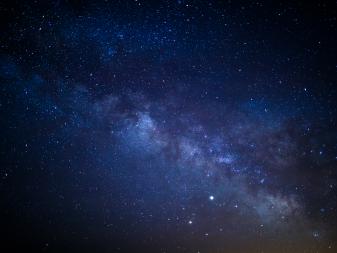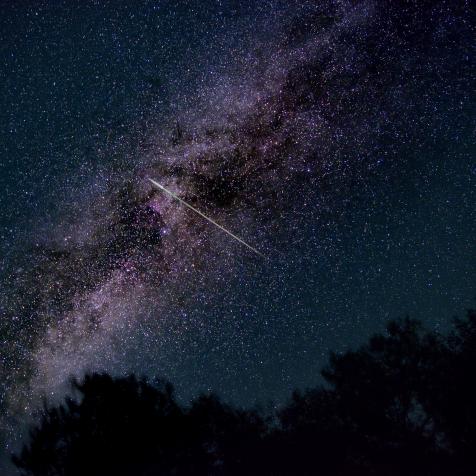
ESA/Hubble & NASA
What is “Dark Flow”?

It sounds super-scary: something from outside the universe, a force so unimaginable, is pulling every single galaxy towards it. What monstrosity of cosmic physics could it be?
It’s the dark flow.
At least the good news is that we don’t know if it exists, and even if it did it wouldn’t be that big of a deal.
Everything in our universe is constantly moving. Planets orbit stars. Stars dance within galaxies. And generally, on average, galaxies are getting further apart from each other. This is the expansion of the universe, first discovered by astronomer Edwin Hubble in the 1920s. According to our best observations, and our understanding of the evolution of the universe, this expansion is uniform. It’s the same in all directions. Once you get to big enough scales, galaxies just move out without any other preferred direction.

Bettmann
Dr. Edwin P. Hubble, who first discovered "dark flow."
But at smaller scales, there can be some very interesting dynamics. For example, our own galaxy, the Milky Way, is on a collision course with our nearest neighbor, the Andromeda Galaxy. In about five billion years our galaxies will collide in a titanic collision, and if our descendants are around to see the show it will be quite spectacular.
On top of that motion, both the Milky Way and Andromeda are heading towards the Virgo Cluster, a dense cosmic city home to about a thousand galaxies.

Natapong Supalertsophon
The Milky Way is moving.
And there’s more. The Milky Way, Andromeda, the Virgo Cluster itself, and all the other galaxies in our nearby patch of space are together moving in the direction of an even bigger cluster, the Norma Cluster, located in a region of space known as the Great Attractor.
Here’s where things start to get tricky. The further out we go in our observations, the harder it gets to pinpoint the precise movements of galaxies. Compounding that, astronomers are really good at measuring the movement of galaxies toward or away from us (based on the shifting of light from the galaxies), but calculating movements in other directions is much harder. So we have to rely on computer modeling to make an educated guess.
While most observations of the larger universe have held up the “expanding uniformly in all directions” point of view, some inconsistencies have emerged. Some observations have seen a tiny, subtle, blink-and-you-miss-it movement. It appears that many galaxies might be moving in a preferred direction, instead of just uniformly outwards.

ESA/Hubble & NASA
Andromeda is moving toward the Norma Cluster.
This is the “dark flow” because it’s an unexplained motion observed in the behavior of galaxies. Like a flock of birds veering to one side, you have to ask: what’s making them go in that direction?
It could be caused by some catastrophe in the early universe, setting up a motion that took billions of years to unfold. It could be something frighteningly massive lying just outside the edge of the visible universe, tugging at all of its with its almost-imperceptible gravity. It could also be just a mistake or bias in the data, an artifact of our inadequate observations.
Whatever it is, the dark flow is nothing to worry about. If it does exist, it’s just a tiny effect that isn’t going to tear apart the universe or jump out from under the bed.
Sleep tight.
Journey Through the Cosmos in an All-New Season of How the Universe Works
The new season premieres March 24 on Science Channel and streams on discovery+.




















